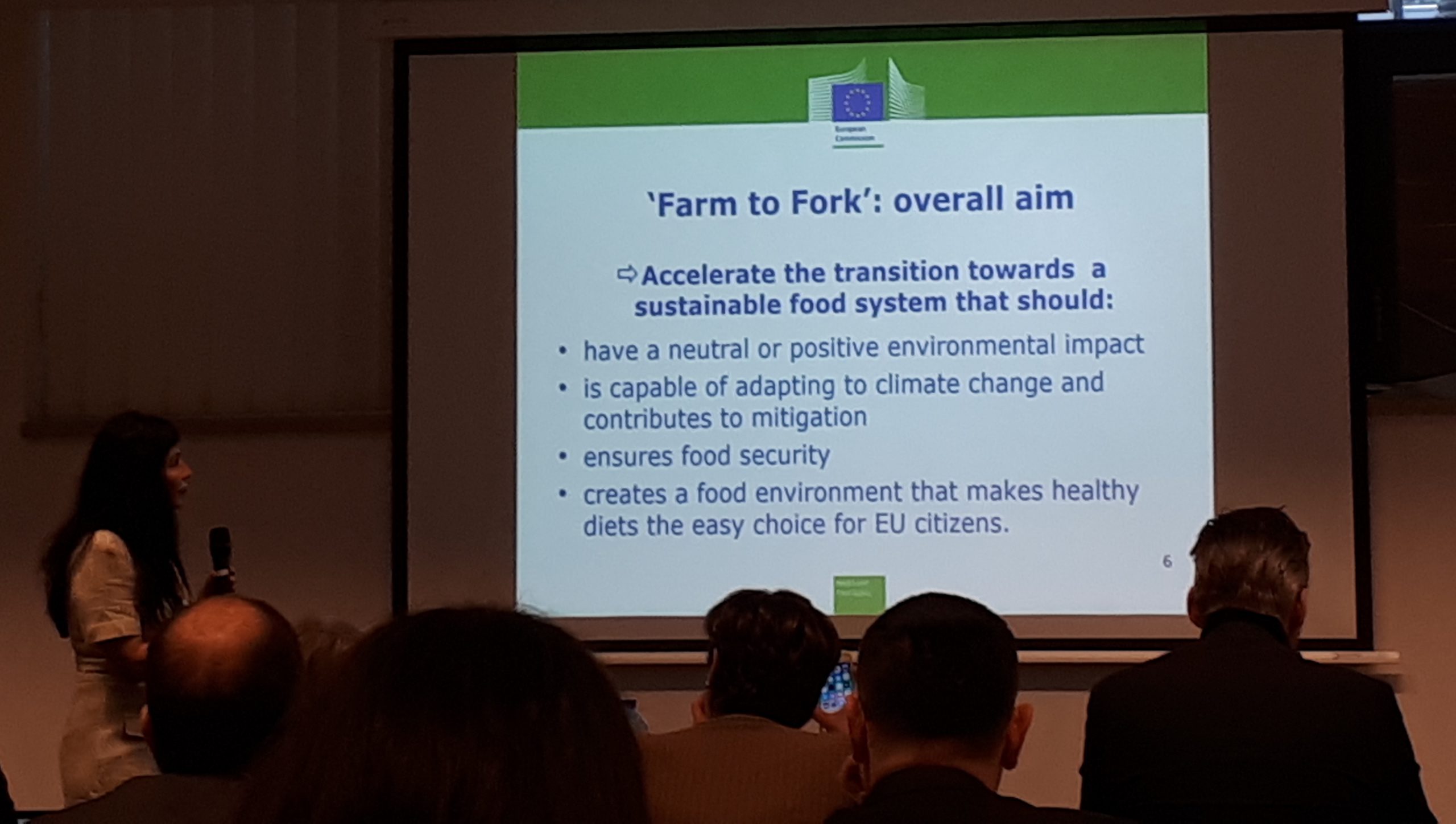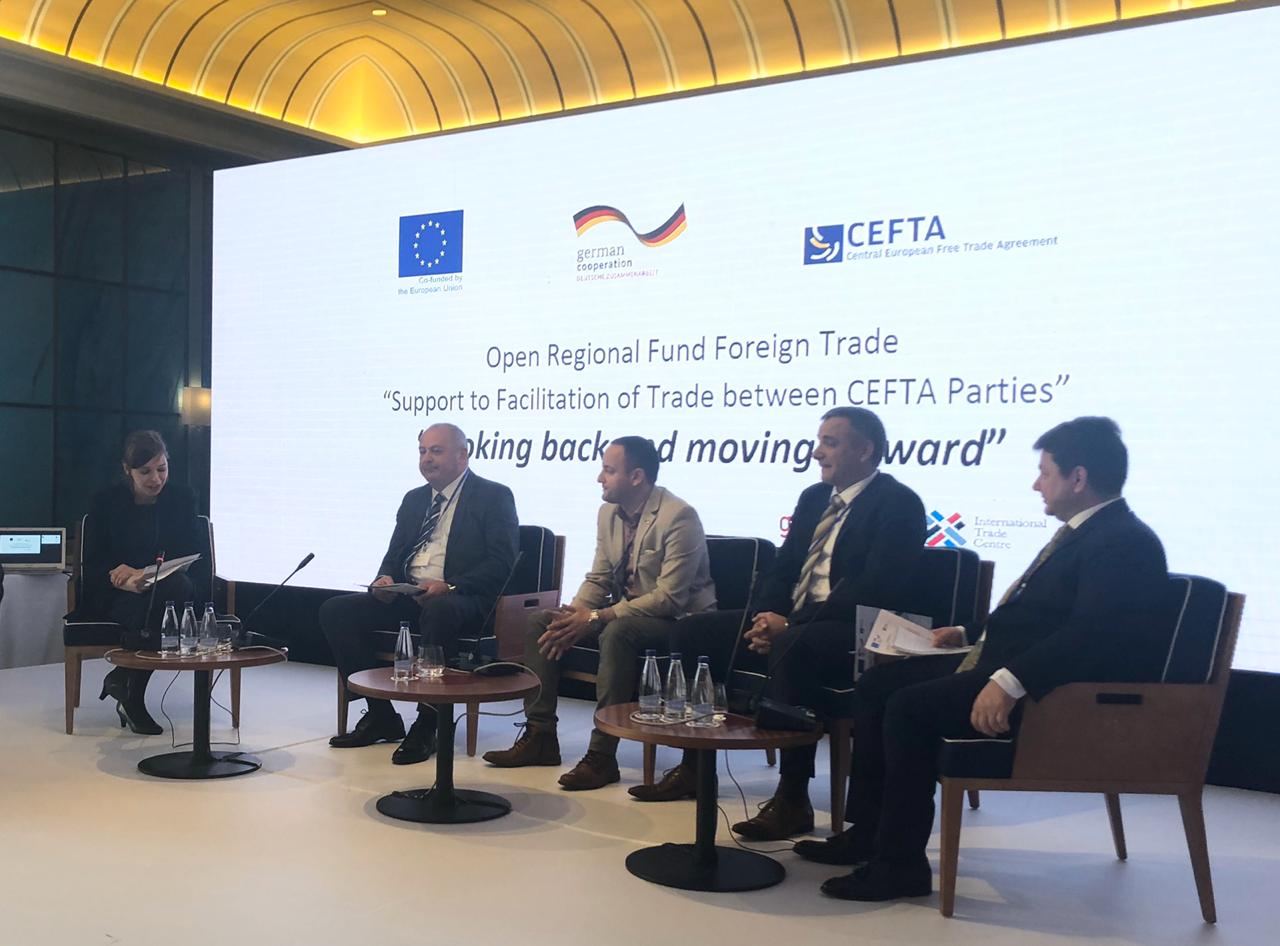
Freshfel Europe Headlines – Edition 2, 2020

Freshfel Europe supports F&V sector during COVID-19 outbreak in Europe
The COVID-19 outbreak in Europe has dramatically changed the day-to-day realities for businesses and consumers. First, for many people affected directly or indirectly by the virus, the outbreak has lead to very difficult personal situations. Besides this, the business and the economy model have changed radically. In this very unpredictable situation resulting in the design of a new business environment, Freshfel Europe has adapted its priorities to address the new challenges of the fresh fruit and vegetables sector. Well guided by the Freshfel Europe’s Board and by all its members, the Secretariat has so far coordinated the views of the fresh fruit and vegetables supply chain and collaborated with the European Commission to address the most pressing concerns of the sector. The sector is facing challenges on multiple levels. This ranges from the repositioning of sales patterns to retail chains as most food services channels were closing, to securing seasonal workers in the field for upcoming harvests and plantings, to up keeping efficiency in the supply chain with new safety rules of social distancing, to securing green lanes for swift crossings of intra EU borders and tackling other logistics issues, to adapting legislation requirements and deadlines within the CAP policy and also looking at different aspects of international trade with new constrains and restrictions.
Fresh fruit and vegetables play an important role in a healthy diet for European citizens. As people are confined at home it is a good moment to rediscover the pleasure and diversity of fresh fruit and vegetable consumption, while taking all the benefit of a healthy diet rich in nutritious fresh produce. During the outbreak Freshfel Europe has continued to disseminate messages through its joint EU funded campaign with Aprifel ‘Follow me to be healthy with Europe’ and through nutrition and health messages on social media.
For more information about Freshfel Europe’s perspective on the development of the outbreak in Europe and its affect on the fresh produce sector, please see Freshfel Europe’s recent press releases here and here.

Freshfel Europe contributes to discussions at Farm to Fork Strategy stakeholder consultation meeting
On the 18 February 2020 Freshfel Europe Policy Advisor Nicola Pisano attended the European Commission’s stakeholder consultation meeting on the Farm to Fork Strategy. The morning session focused on the European Commission’s Group of Chief Scientific Advisor’s Scientific Opinion on recommendations on the topic of ‘Towards an EU sustainable Food System: Insights from Social Sciences’. The Commission intends to draw recommendations from this Opinion in the drafting of the Farm to Fork Strategy. Following presentations from the different Directorate Generals involved in the Farm to Fork Strategy an open discussion was held with stakeholders present from across the agri-food sector. Freshfel Europe stressed the need for policy coherence across the regulatory and non-regulatory initiatives in the Farm to Fork Strategy as well as with other EU-level existing and new policies. Freshfel Europe also replied to the open consultation on the Farm to Fork Strategy roadmap. The Farm to Fork Strategy is expected to be published on the 29 April 2020.

Freshfel Europe takes part in Civil Society Dialogue with Trade Commissioner Hogan
On 18 February 2020 Freshfel Europe’s Secretary General Philippe Binard and International Trade Policy Advisor Natalia Santos-Garcia Bernabe participated in the Civil Society Dialogue meeting with Trade Commissioner Phil Hogan. During the meeting the Commissioner announced a new package of transparency measures that will include, among others, a systematic reporting on the work of all committees established under EU trade agreements. During the meeting, Mr. Binard took the floor to recall the need for the EU to continue reinforcing its engagement with trade partners, with a view to facilitate market access and tackle SPS barriers preventing diversification of EU fresh produce exports.

Freshfel Europe participates in EU-Lebanon Technical Meeting on Exports for Fresh Fruits to the EU
In the framework of bilateral relations with Lebanon, the European Commission requested Freshfel Europe to participate in their EU-Lebanon Technical Meeting on Exports for Fresh Fruits to the EU. The objective of the workshop was to assist Lebanese producers and exporters to improve the competitiveness of their agri-food exports to the EU market. On this occasion, Freshfel Europe’s General Delegate Philippe Binard and International Trade Policy Advisor Natalia Santos-Garcia Bernabe moderated a session on the EU regulatory requirements for imports of fresh fruit and vegetables with a focus on food safety and quality, plant health and official controls. They also provided Lebanese authorities and private sector stakeholders who were present in the meeting with insights on the potential challenges and opportunities for fresh produce in the current context when sustainability is becoming a major priority for both EU regulators and consumers.

Freshfel Europe sends fresh fruit and vegetable sector’s priorities position to EU Chief Negotiator’s team
In light of the launch of EU-UK negotiations for a free trade agreement early last month, the Freshfel Europe Secretariat together with its members prepared a position paper outlining the key priorities of the fruit and vegetables sector. The paper was sent to the EU negotiators and relevant European Commission services. Freshfel Europe’s Secretary General Philippe Binard and International Trade Policy Advisor Natalia Santos-Garcia Bernabe will also be meeting with the European Commission services later this month to discuss the key elements in the paper, including a call for a zero tariffs/quantitative restrictions agreement, the need for close cooperation in the area of SPS as well as the importance if introducing advanced cooperation for checks and controls given the big volumes currently traded at stake. The need to ensure a level playing field between the EU and UK operators in addition to the protection of European standards are also included in Freshfel Europe’s position as priorities for the fresh produce sector.

Freshfel Europe discusses fruit and vegetable sticker regulation with European Commission
Over the last year and half Freshfel Europe has been following developments in the regulation of the use of stickers on fresh fruit and vegetables. Fresh produce stickers are an indispensable form of packaging in the European and global fresh produce sector. In particular, stickers play a vital role in the communication of obligatory and essential information for actors along the supply chain as well as for consumers that would otherwise necessitate further product pre-packaging. This includes variety, colour, traceability, branding, country of origin, PLU codes, barcodes, messages such as ‘ready to eat’, and fraud detection among others.
While currently no EU-wide regulation exists for their use on fresh produce, a number of Member States have adopted national legislation restricting their use. These legislations will begin to come into force from the beginning of next year. Freshfel Europe Policy Advisor Nicola Pisano and Freshfel Europe General Delegate Philippe Binard met with European Commission DG Environment officials to discuss current sticker use by the sector, future implications of current Member State legislation as well as potential EU-wide legislation at the beginning of March. Freshfel Europe and its members will continue to work closely with the European Commission on this subject, in particular on navigation towards harmonisation of regulations of the use of stickers on fresh fruit and vegetables.

Freshfel Europe continues work for facilitation of rules for the Certificate of Inspection of Organic imports – rules finalised now
In early January 2020 DG AGRI published Regulation 2020/25, which announced the concretization of the issuance date of the Certificate of Inspection Organic (COI) prior departure. As this has been considered as a reinforcement by the European Commission and not a new issuance of a law, the process had only been discussed internally in the Committee of Organic Production. Consequently, the change came by surprise for many traders in the fruit and vegetable sector, who were challenged by the sudden implementation. The issuance process as well as the availability of transport documents in third countries is a key hurdle to have the COI’s in a timely manner. Freshfel Europe has continued over the course of January/February to collect technical information on the matter and raise the technical challenges to DG AGRI, in order to allow some flexibility with regard to the issuance of the document. There is now a 10-day flexibility of certain boxes within the COI, which has been informally applied as of the 3 February 2020 and officially adopted by the Committee of Organic Production on 16 March 2020. The sector welcomes the flexibility made with regard to the issuance date of the COI, but remains alert to on-going trade distortions by the procedures in third countries.

Freshfel Europe presents business perspectives during GIZ Trade Facilitation Project event in the CEFTA area
Freshfel Europe has been following the German Development Cooperation Agency (GIZ) project ‘Trade Facilitation to CEFTA parties’ on the Western Balkans over the past 3 years from the impact assessment to the final stage of this project. The project’s aim is to introduce trade-facilitating reforms in the area of customs to increase trade among the various CEFTA parties (Albania, Montenegro, North Macedonia, Bosnia-Herzegovina, Serbia and Kosovo). In this context Freshfel Europe’s Director Trade Policy Nelli Hajdu has been accompanying the Regional Business Advisory Group (RBAG) comprised of fruit and vegetable traders from all five countries on their journey to identify key problems for the trade flow of perishable goods and to develop strategies for better exchange with policy makers. The project, financed by the EU and the GIZ, came to a conclusion in December 2019 resulting in the successful adoption of the ‘Agreement of Facilitation of F&V’ in February 2020, which foresees an EU-like approach for fresh fruit trade in the region. The final event with high-level policy-making participants as well as the CEFTA secretariat was held on 26 February 2020 in Tivat, Montenegro. Ms. Nelli Hajdu moderated the business panel together with fruit and vegetable representatives from the region to discuss the current outcome of the reforms and visions for the future.

Gil Kaufman joins Freshfel Europe Secretariat
Following Ms. Helene Deruwe’s departure from Freshfel Europe, Gil Kaufman has joined the Secretariat as the new Project and Data Management Assistant. An Israeli and Italian citizen, Gil is now responsible for the daily management and dissemination of Freshfel Europe’s actions in EU-funded projects and is involved in the activities of the World Apple and Pear Association (WAPA). Gil holds a BA in International Relations from the University of Trento, an MA in European Studies from Maastricht University. He completed a traineeship at the Trans European Policy Studies Association (TEPSA) before joining Freshfel Europe.
